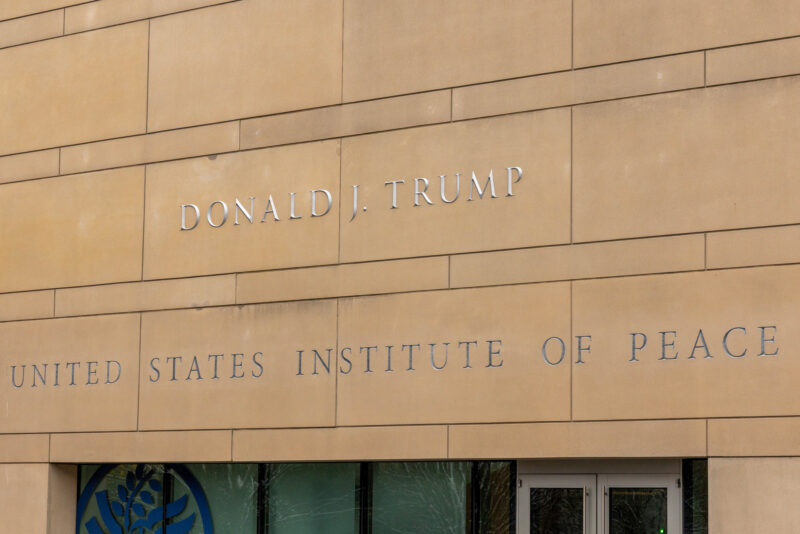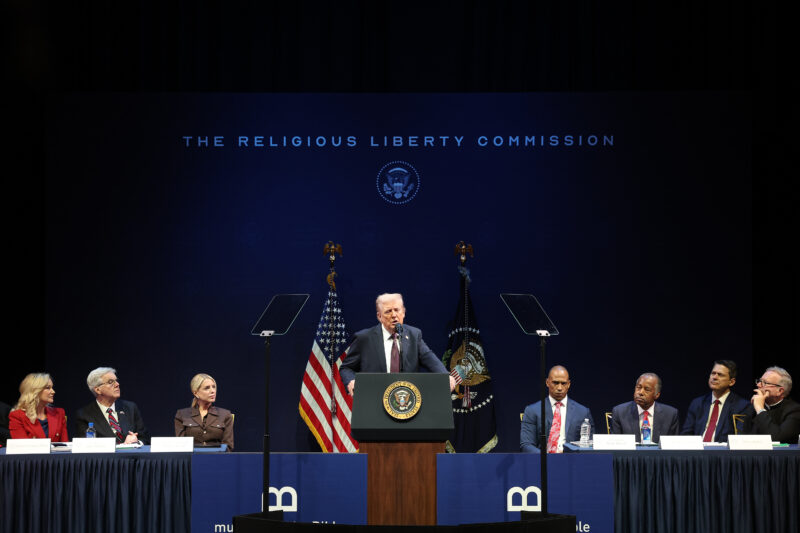Defense bill provision could be key to combating Iran, Houthi threats at sea, senators say
The MARITIME Act, which seeks to build cooperation and integration among U.S. partners in the Middle East against Iranian-backed threats at sea, is included in the 2024 NDAA

Drew Angerer/Getty Images
Sen. Joni Ernst (R-IA)
The MARITIME Act, a provision included in this year’s defense policy bill that seeks a strategy to integrate maritime operations among the U.S. and its partners in the Middle East, could be key to combating the rise in attacks by Iran and its proxies on key shipping lanes in the Middle East, the bill’s sponsors said yesterday
The legislation seeks to expand cooperation among Abraham Accords countries and other U.S. partners in the Middle East to counter seaborne threats from Iran and other malign actors in the region, including both intelligence/threat detection and interdiction. The bill was first introduced in April, well before the current spate of attacks, but was added into the 2024 National Defense Authorization Act that Congress is expected to pass this week.
“If there are threats at sea, whether it’s under the water, or even naval activity on the surface, we will be able to see that, interdict it and deter those Iranian-backed terrorists and prevent attacks and save American lives,” Sen. Joni Ernst (R-IA), a lead backer of the MARITIME Act and co-chair of the Abraham Accords Caucus, told Jewish Insider on Tuesday. “It’s very timely that this is going through the NDAA right now.”
“I think it’s really important that we continue working with our partners and allies and sharing that information and working together to push back on Iran as this does,” Ernst continued.
Sen. Jacky Rosen (D-NV), another lead sponsor of the bill and co-chair of the Abraham Accords Caucus, said that recent events had highlighted the need for the legislation.
“Hostile actions committed by Iranian-backed proxies like the Houthis have highlighted the urgent need for a coordinated naval strategy in the Middle East,” Rosen said in a statement to JI. “I’m glad my bipartisan legislation requiring a maritime strategy between the U.S., Israel, and our Arab partners has been included in this year’s national defense package, and I’ll continue working to see that it passes into law.”
Ernst said that the MARITIME Act initiative would go further than the multinational task forces that the administration is seeking to establish to protect cargo vessels and shipping lanes in the Red Sea, but she said it could “absolutely nest in with other activities we would need to see from the administration.”
The MARITIME Act is a sequel to the DEFEND Act, which passed as part of the NDAA in 2023, focusing on enhancing air- and missile-defense integration among U.S. partners in the region. Ernst said that space could be the next area of focus for integration efforts.
“We don’t see a lot of Iranian activity necessarily in space yet. But we do have Chinese and Russian activities there. So I think as we just continue to move forward, we’ll find ways to partner,” Ernst said. “It’s incredibly important that all of our systems are tied together for friends and allies, and that we’re able to share information quickly to again interdict whether it’s a seaborne threat, airborne threat, or even perhaps, as I’m thinking ahead, [space.]”
Please log in if you already have a subscription, or subscribe to access the latest updates.






















































































